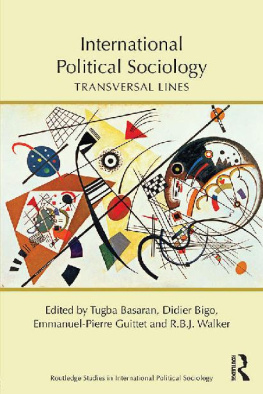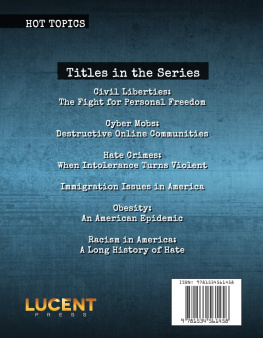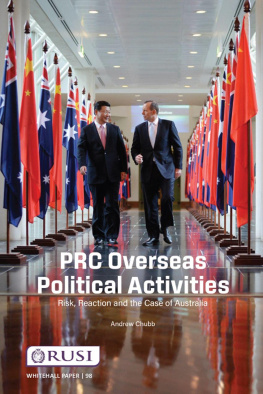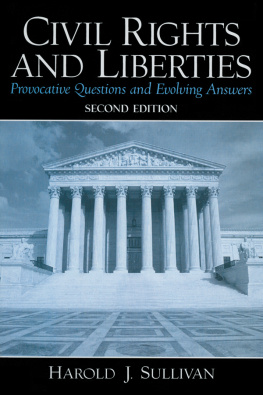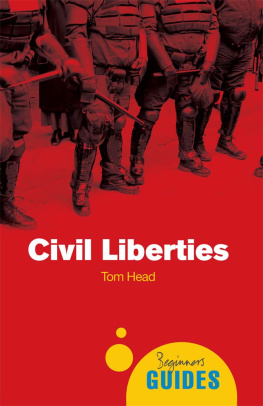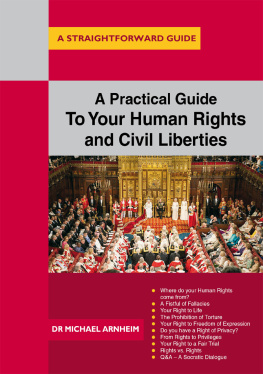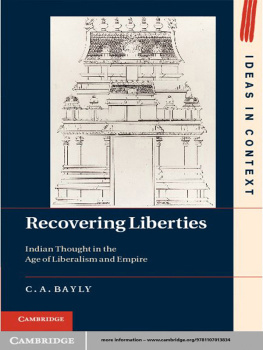
Security, Law and Borders
This book focuses on security practices, civil liberties and the politics of borders in liberal democracies.
In the aftermath of 9/11, security practices and the denial of human rights and civil liberties are often portrayed as an exception to liberal rule, and seen as institutionally, legally and spatially distinct from the liberal state. Drawing upon detailed empirical studies from migration controls, such as the French waiting zone, Australian off-shore processing and US maritime interceptions, this study demonstrates that the limitation of liberties is not an anomaly of liberal rule, but embedded within the legal order of liberal democracies. The most ordinary, yet powerful way, of limiting liberties is the creation of legal identities, legal borders and legal spaces. It is the possibility of limiting liberties through liberal and democratic procedures that poses the key challenge to the protection of liberties.
The book develops three inter-related arguments. First, it questions the discourse of exception that portrays liberal and illiberal rule as distinct ways of governing and scrutinizes liberal techniques for limiting liberties. Second, it highlights the space of government and argues for a change in perspective from territorial to legal borders, especially legal borders of policing and legal borders of rights. Third, it emphasizes the role of ordinary law for illiberal practices and argues that the legal order itself privileges policing powers and prevents access to liberties.
This book will be of interest to students of critical security studies, social and political theory, political geography and legal studies, and IR in general.
Tugba Basaran is lecturer at the School of Politics and International Relations at the University of Kent. She holds a PhD in International Studies from the University of Cambridge.
Routledge Studies in Liberty and Security
Series editors: Didier Bigo, Elspeth Guild and R.B.J. Walker
This book series will establish connections between critical security studies and International Relations, surveillance studies, criminology, law and human rights, political sociology and political theory. To analyze the boundaries of the concepts of liberty and security, the practices that are enacted in their name (often the same practices) will be at the heart of the series. These investigations address contemporary questions informed by history, political theory and a sense of what constitutes the contemporary international order.
Terror, Insecurity and Liberty
Illiberal practices of liberal regimes after 9/11
Edited by Didier Bigo and Anastassia Tsoukala
Exceptionalism and the Politics of Counter-terrorism
Liberty, security and the War on Terror
Andrew W. Neal
Muslims in the West after 9/11
Religion, politics and law
Edited by Jocelyne Cesari
Mapping Transatlantic Security Relations
The EU, Canada and the War on Terror
Edited by Mark Salter
Conflict, Security and the Reshaping of Society
The civilisation of war
Edited by Alessandro Dal Lago and Salvatore Palidda
Security, Law and Borders
At the limits of liberties
Tugba Basaran
Security, Law and Borders
At the limits of liberties
Tugba Basaran
First published 2011
by Routledge
2 Park Square, Milton Park, Abingdon, Oxon OX14 4RN
Simultaneously published in the USA and Canada
by Routledge
270 Madison Avenue, New York, NY 10016
Routledge is an imprint of the Taylor & Francis Group, an informa business
This edition published in the Taylor & Francis e-Library, 2010.
To purchase your own copy of this or any of Taylor & Francis or Routledges collection of thousands of eBooks please go to www.eBookstore.tandf.co.uk.
2011 Tugba Basaran
All rights reserved. No part of this book may be reprinted or
reproduced or utilized in any form or by any electronic, mechanical
or other means, now known or hereafter invented, including
photocopying and recording, or in any information storage or
retrieval system, without permission in writing from the publishers.
British Library Cataloguing in Publication Data
A catalogue record for this book is available from the British Library
Library of Congress Cataloging in Publication Data
A catalog record for this book has been requested
ISBN 0-203-84192-1 Master e-book ISBN
ISBN13: 978-0-415-57025-1 (hbk)
ISBN13: 978-0-203-84192-1 (ebk)
To my mom for her lifelong support
with special thanks to David for his never waning friendship, Didier for his critical insights and Tarak for his constant assistance. A heartfelt thanks also to my friends, colleagues and the kind strangers who have supported me throughout the process of writing this book.
Contents
Introduction
At the center of this inquiry are people deprived of rights, purposively barred from fundamental liberties under liberal rule through the politics of borders. Liberal democracies argue that refugees and migrants detained at airports, intercepted on the high seas or sent to refugee camps in third countries are outside their borders and therefore outside the remit of their legal rights procedures. The politics of borders has become an important security practice of liberal states. Borders and the distinction between inside and outside are strategically used to change the ordinary balance between security and liberties in liberal states: to increase policing powers and to limit access to legal rights and procedures. Through the politics of borders, liberal states can deny to particular populations fundamental rights, which are the normative and legal foundation of liberal states, whilst continuing to control the very same space through policing powers. The effect of the politics of borders is legal exclusion. Legal exclusion can include denial of due process, unlimited detention, denial of access to courts, to legal advice and to substantive rights, under conditions of quasi-isolation, combined with legally contestable return and rendition policies. These violations of human rights and civil liberties are committed by liberal democracies that continue to operate under the rule of law and value liberal rights, but at the same time restrict or even suspend fundamental rights for a specific category of people at specific places. The politics of borders highlight that illiberal practices are embedded in ordinary politics of liberal democracies and, moreover, how illiberal practices can be legally authorized. These are essentially questions on the borders of liberal rule.
It is here that one finds an interesting line of inquiry on how the limitation of liberties is rendered possible under liberal rule. To pursue this question, this book will focus on the relation between the rule of law and liberties. Liberal democracies face a constant struggle in the protection of liberties. In this struggle, rule of law is considered to be an indispensable safeguard for the defense of liberties. According to the liberal conception of law, law guarantees liberties, and moreover facilitates a piecemeal struggle for a more just and inclusive order. This book concentrates on a different use of law in liberal democracies: law that is purposively designed to restrict liberties; law that constructs and legitimizes unequal access to liberal rights. It seeks to critically examine contemporary manifestations of this problematique inherent to liberal democracies. To explore contemporary liberal security practices at borders, this study will focus on the globally widespread use of migration controls.


